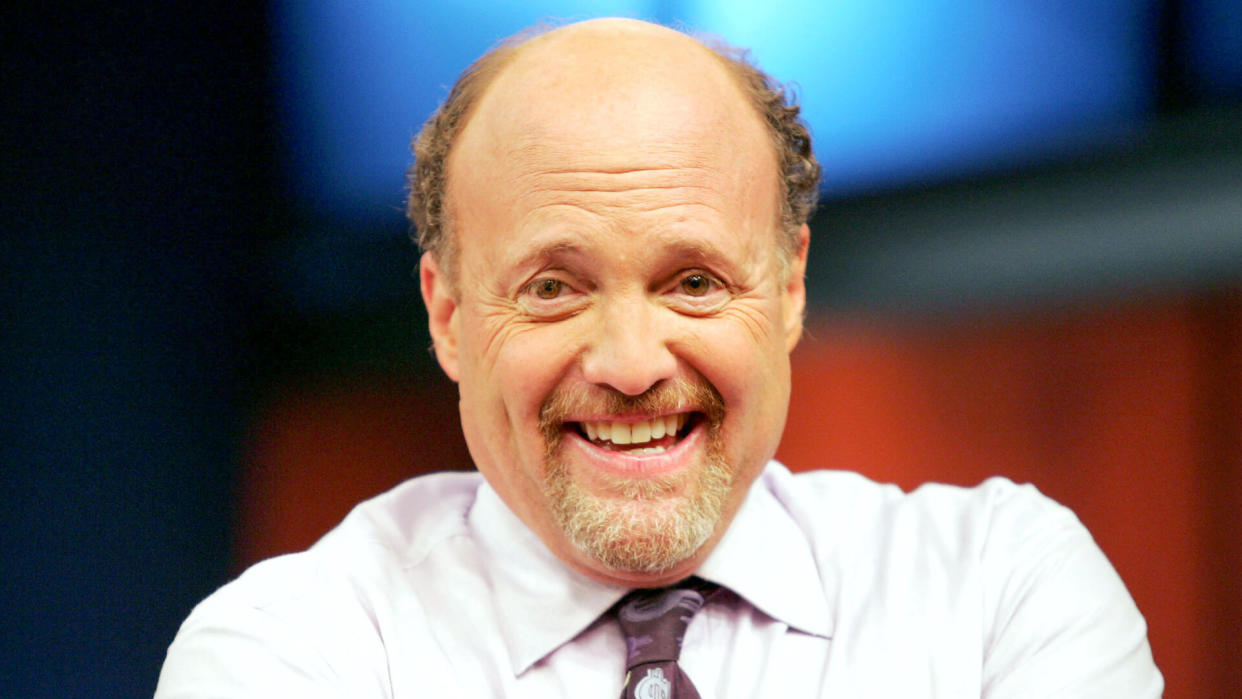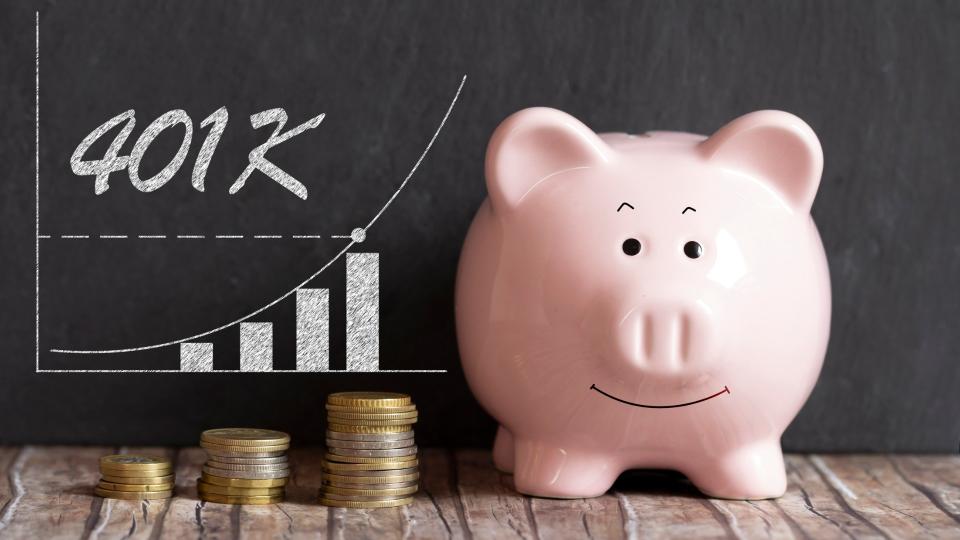Best Investing Advice From These Top 10 Experts

We all know that we should be investing, but figuring out where to start, what strategies to follow and how to best allocate our investments can be overwhelming. And while there is a lot of investing advice out there, it’s hard to know what’s really worth following.
See: 13 Investing Rules You Should Break During the Pandemic
GOBankingRates went to America’s most trusted sources for investing advice to get their best tips. Here’s what 10 experts like Jim Cramer, Andrew Sather and Stig Brodersen had to say about investing wisely.
Last updated: April 22, 2021

Invest In Your Financial Education
To be a savvy investor, you first have to take the time to educate yourself.
“Investing isn’t just a question of putting aside money as early as possible and the compounding interest of your portfolio, but rather about the compounding interests of your investment knowledge,” said Stig Brodersen, co-host of the “We Study Billionaires” podcast. “Start reading books as soon as possible, and learn from the people with the best track records like Warren Buffett.”
Learn: Ways Investing Will Change in the Next 25 Years

Make Investing a Habit
“The single best thing you can do with your money is to build an investing habit, and start that habit immediately,” said Andrew Sather, co-host of “The Investing for Beginners Podcast.” “It doesn’t matter if you don’t feel like you have much to invest — even $20 or $30 a month can compound to great sums over time.”
This is advice that Sather has taken himself.
“A great example is the first stock I ever purchased back in 2012: I bought a single share of Microsoft at about $27.50,” he said. “I reinvested my dividends from the company, which turned a single share into 1.1925 shares, now worth over $300.”
Money Moves: 19 Areas To Invest In During a Financial Crisis

Develop and Stick To an Investing Strategy
“Make sure from the very beginning of your trading career that each trade you make follows a solid strategy,” Andrew Aziz, author of “How To Day Trade for a Living” told Entrepreneur.
“Trading is a complex network of interconnected data lines, and without a strategy, it’s all too easy to get ‘swept up in the moment’ and lose big. I see many rookies jumping in and out of trades without having a well-thought-out plan. They may see good results now and then, but without a strategy, they’ll never enjoy the consistent gains they need to create a stable and reliable business from their trading venture.”
Check Out: Guide to the Best Investment Strategies at Every Age

If You're New to Investing, Start With Your a Retirement Account
“The best way to invest and take advantage of the stock market – without the hassle of trying to understand its every move – is to participate in a tax-friendly retirement fund like your employer’s sponsored retirement fund (e.g. a 401(k)) and/or an individual retirement account (IRA),” Farnoosh Torabi, host of the “So Money” podcast, wrote on her website.
See: 25 Top-Paying Dividend Stocks That Will Make You Rich

Max Out Your 401(k) Contribution If You Can
Ramit Sethi, author of “I Will Teach You To Be Rich,” also believes that new investors should begin with their retirement account. If a 401(k) is offered to you, invest here first.
“Each month you should be contributing as much as you need to in order to get the most out of your company’s 401(k) match,” Sethi wrote on his website. “That means if your company offers a 5% match, you should be contributing AT LEAST 5% of your monthly income to your 401(k) each month.”
Once you’ve paid off any existing debts, you should aim to max out your 401(k) contributions.
“If you have money left over, go back to your 401(k) and contribute as much as possible to it (this is above and beyond the employer match),” he wrote. “You can contribute up to $18,000 a year on your 401(k) if you’re under 50.”
On the Other Hand: 25 Downsides of a 401(k) That You’ve Never Heard Of

Your First Investment Should Be in an Index Fund
If you don’t have the option to invest in a 401(k), you should invest in an IRA. Most IRAs enable you to choose your own stocks, but for new investors, “Squawk on the Street” co-host Jim Cramer said it’s better to invest in index funds than individual stocks.
“There’s too much risk in individual stocks to just put together a portfolio of them of your own choosing,” Cramer told CNBC. “So, at a minimum, I am demanding that you put your first $10,000 beyond what you have from your first 20 years into an index fund, the S&P 500 being my favorite.”
Compare: Index Funds vs. Mutual Funds: Which Is Best?

Invest In What You Know
When you feel ready to invest in stocks, stick to companies you know. That’s the advice Jully-Alma Taveras, founder of the financial education platform Investing Latina, would give to her younger self.
“I would tell myself, ‘Hey, start researching all the companies you already buy from — Amazon, Apple, Nike — and consider investing into them,'” she said.
Learn More: Do You Invest Like These Millionaire Stars?

Day Trading Doesn't Pay Off for Most People
Although day trading can be lucrative for those with the right mix of skill and luck, it’s not the best investing strategy for the majority of investors.
“Most people should not day trade,” Jon Fortt, co-anchor of CNBC’s “Squawk Alley” told The Verge. “Most people, you get rich slowly in the markets if you do it right, not overnight. And mom and dad at home probably shouldn’t be attempting short squeezes on hedge funds as a routine thing.”
Read More: 4 Investing Lessons the Pandemic Has Taught Us

Don't Sell Based on Daily or Monthly Performance
Charles Payne, host of Fox Business’ “Making Money with Charles Payne,” said that many investors sell stocks too soon based on their short-term performance.
“They lose faith far too fast,” he said. “They want stocks to go up every day, and I’m noticing more are measuring portfolio against the market on a daily or weekly basis. NUTS.”
Investing for Beginners: What First-Time Investors Need To Know

Invest More in Stocks Than in Other Assets
“All the experts talk about a ‘balanced portfolio’ — some stocks, some bonds, gold… I think that’s a dated view,” said Liz Claman, anchor of FOX Business’s “The Claman Countdown.”
“Over time, the stock market paid investors better than most investments. Since 1930, the S&P has returned an average of 9.7% annually. Now, keep in mind that some years were way better, and others, like the financial/housing crash of 2008 when the S&P lost 37% of its value, have been way worse. But lately, personal investment experts say that over time, buying quality companies with good management should be the greater part of a portfolio. Yes, bonds can give you downside protection, but unless you’re in your later years and need to preserve your savings, quality stocks are a good bet.”
More From GOBankingRates
Money’s Most Influential: Where Do Americans Get Their Financial Advice?
‘Rich Dad Poor Dad’ Author Robert Kiyosaki: You Should Never Say ‘I Can’t Afford That’
This article originally appeared on GOBankingRates.com: Best Investing Advice From These Top 10 Experts

